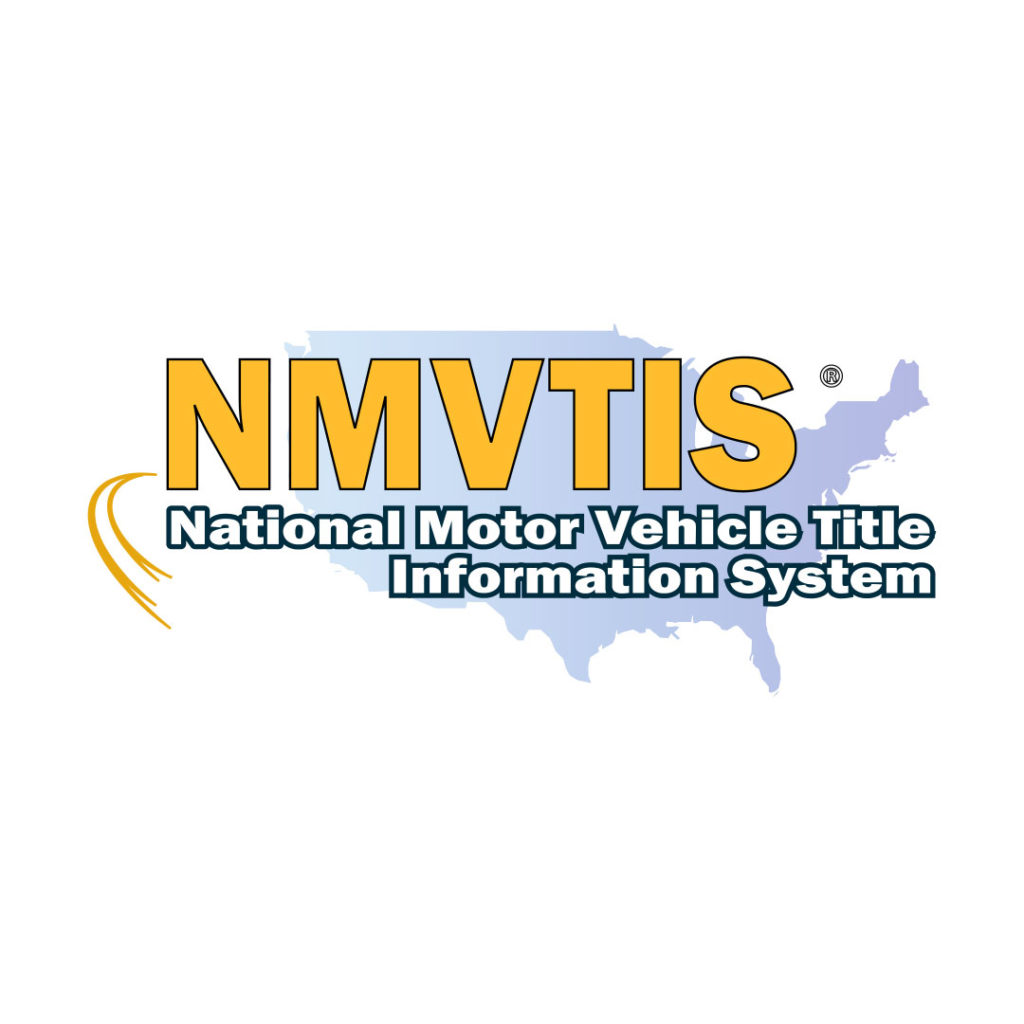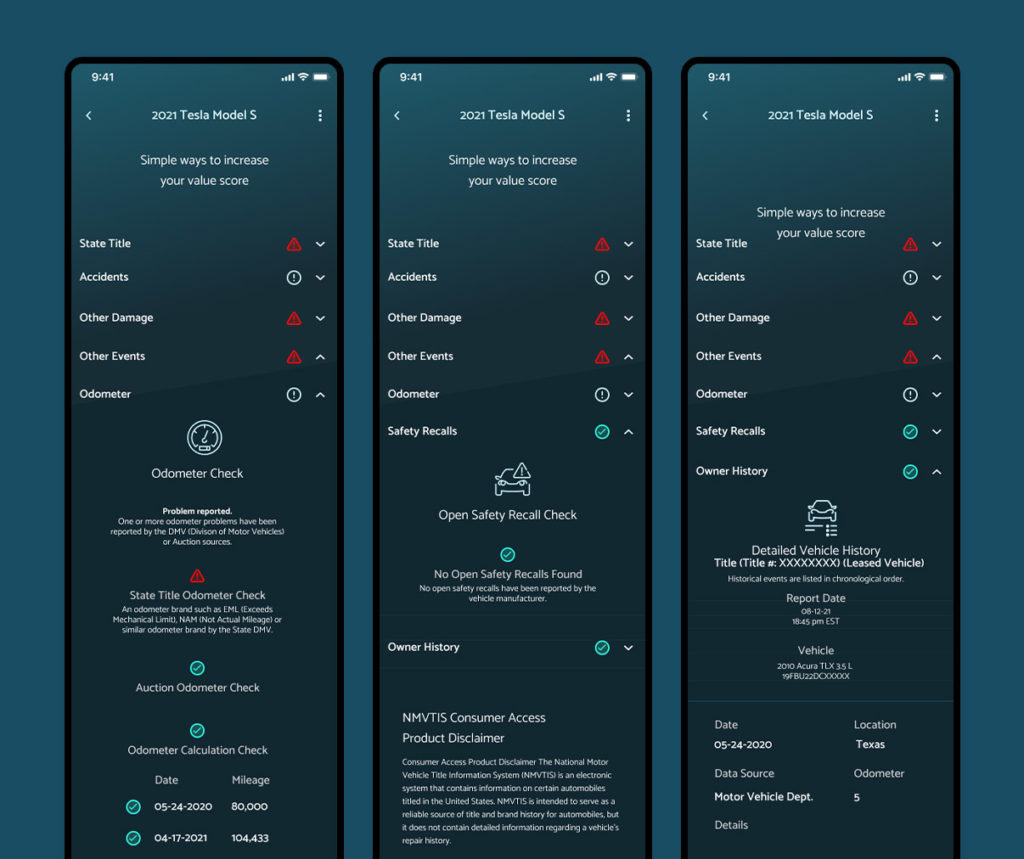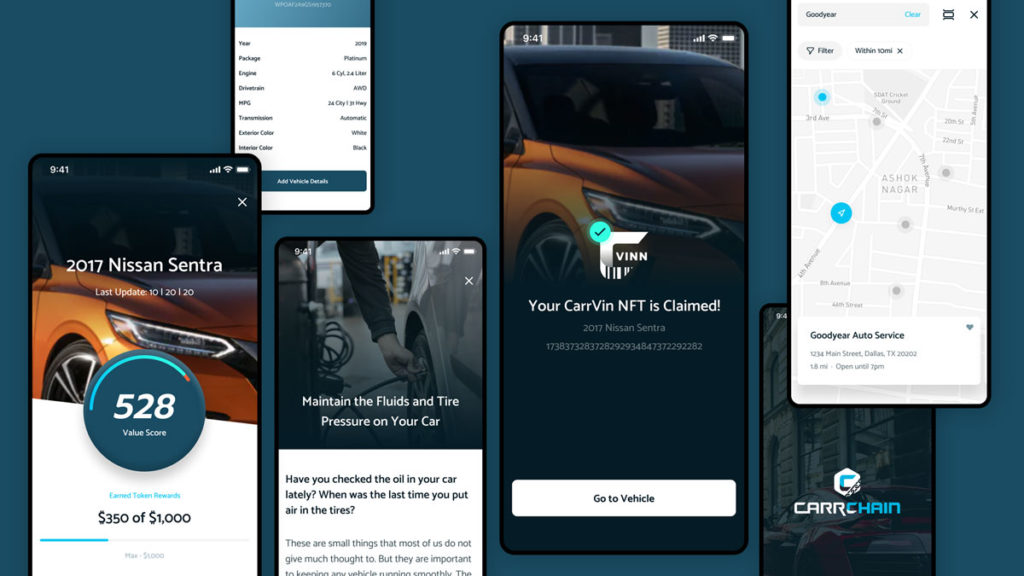Consumers shopping for cars are having a harder time finding the right vehicle due to the supply chain crisis that’s affecting the vehicle market. The shortage of computer chips combined with auto factory shutdowns have affected not only the production of new cars; it’s creating a trickle-down effect on the pre-owned market as well. Thanks to high demand and low supply, many are paying slightly above MSRP for new cars at dealerships. Those who can’t compete in the market are turning to snatch-up pre-owned vehicles instead.
Desperate circumstances should not warrant desperate decisions though—not when it means purchasing what is probably a consumer’s second most expensive investment. Savvy car buyers should always check a vehicle registration database, like the National Motor Vehicle Title Information System (NMVTIS), before they buy to ensure they aren’t selecting a car with potential title fraud or problematic issues.
What’s So Special About the NMVTIS?

An NMVTIS Report Covers These Factors:
1. Title Information
The current and previous state of title data is included in every report to help prevent auto theft and fraud.
2. Brand History
Brand history has nothing to do with whether the vehicle you’re researching is a BMW or a VW Beetle. This is a descriptive label given by state motor vehicle titling agencies detailing the title and whether it’s ever had the status of “junk,” “salvage,” or “flood.” If the vehicle you’re researching has a branded title, it’s important to be aware of potential issues from purchasing a damaged vehicle.
3. Odometer Reading
Understanding the exact odometer reading helps consumers understand the true value of any vehicle they are considering purchasing. Odometer data is an important consideration when determining a fair market value, and an NMVTIS report with data from state agencies can help consumers make wise choices.
4. Salvage or Total Loss History
It’s often best to avoid salvage or total loss-branded vehicles. Salvage means major damage occurred to the vehicle that could make it potentially unsafe to drive or cause it to have a host of future mechanical or structural problems not easily visible in its current state. It also will forever carry the reputation of being a salvage vehicle which could make it difficult to insure.
A total loss is similar to salvage branding, only it means there was such severe damage to the vehicle that it was branded such on its title.
It’s important to understand what an NMVTIS report means so you don’t fall into the trap of paying too much for a used car, potentially purchasing a car that has been stolen, or getting stuck with an unsafe vehicle.
Buying pre-owned is a somewhat risky endeavor; databases like the NMVTIS help keep the market a bit more transparent.
Fraudsters Can’t Hide in the Blockchain
A Partnership Fueling Secure Car Buying
A while back, Carnomaly released some exciting news: the automotive crypto company officially partnered with the NMVTIS to provide its members with the most reliable source of vehicle title data. This partnership, utilizing the Carnomaly CarrChain platform, can help car buyers who wish to buy a car better assess a used vehicle’s real value and avoid potential fraudulent titles.
CarrChain’s platform is made possible with the trusted blockchain technologies we previously mentioned. It’s a database of information at your fingertips that’s completely secure and tamper-proof because of blockchain. What’s more, CarrChain members are incentivized to log detailed history reports about their own vehicles in the app. But more about that in a bit.
Curious how it works?
CarrChain will generate a unique DVIN “Digital Vehicle Identification Number” for each member’s vehicle when a user enters a VIN upon registration. Think of it as a digital profile for each vehicle that can never be changed or amended. Each detail of the digital car profile is securely recorded in the blockchain database, and the unique DVIN is used to identify it.
With CarrChain, each digital profile captures:

- Registration status, claim information, and other records from dealers, insurance companies, collision centers, and DMVs
- Maintenance histories such as oil changes, tire replacements, and more
- Recall information regarding the vehicle
Rewarding Vehicle Owners for Being Honest and Up-to-Date

Now if you’re like most readers, you might be wondering if someone would really take the time out of their busy day to log each detail about his/her vehicle in the app. Taking this factor into consideration, CarrChain rewards its members for being transparent about its vehicle history and makes the experience super intuitive too. You can see for yourself how easy it is to move around in the app, update a profile, and utilize every feature of the CarrChain app. The more a user updates its vehicle’s profile, the more points the member earns toward its reputation score. When it comes time to sell, if the CarrChain member has been keeping detailed historical reports within the app, it will be rewarded with a value score that’s appealing to potential buyers.
Conclusion
The Carnomaly partnership with the NMVTIS is enabling a trusted marketplace where all sellers and buyers can enter into favorable transactions in a completely transparent and secure manner. CarrChain history reports will be the most precise and comprehensive on the market, ensuring buyers and sellers get the best value possible for their vehicle.


